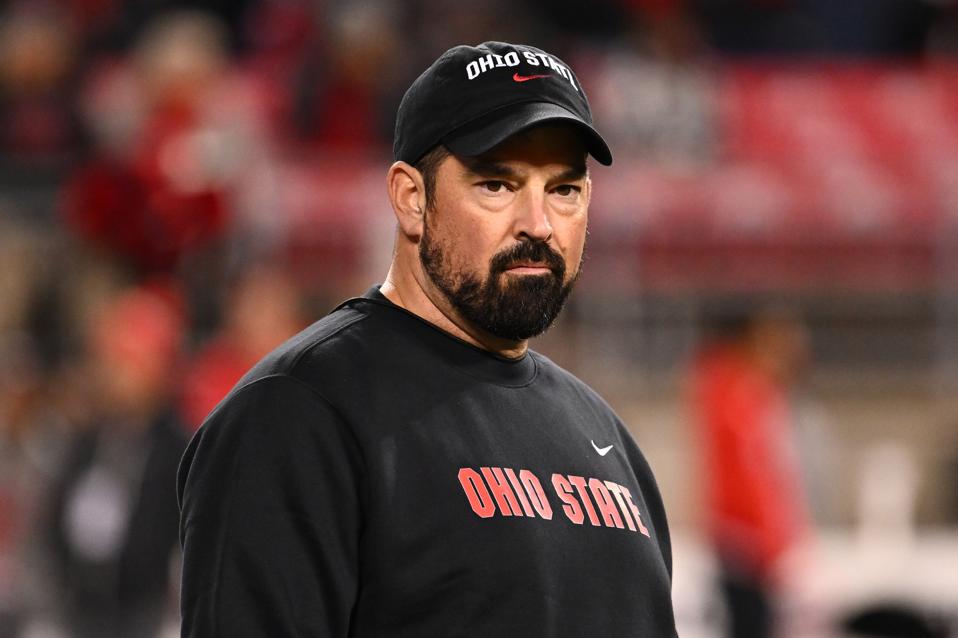It happens every year. Each college football season we see a top-ranked school fall to a lesser opponent in the opening week. The most famous example this century came when unknown Appalachian State defeated No. 5 Michigan 34-32 on September 1, 2007. That loss stunned the sports world. But a result last Saturday now rivals it. Students in Tallahassee stormed the field over the weekend when the unranked Florida State Seminoles, a two-touchdown underdog, upset No. 8 Alabama, 31-17.
But what does an upset like that mean for a program?
It would be easy for fans of the Crimson Tide to feel dejected, to believe that their season is over before it’s even begun. Some are already calling for coaches to be fired. Each year, Alabama has ambitions of winning the national title. Regularly, they boast top recruiting classes and many of their players go on to the NFL. So how could a program like that lose to an unranked opponent in the opening week?
Conversely, the win could have fans of Florida State losing their collective minds. Alabama is the gold standard in college football. Defeating them to begin the season—that’s a coup! Of course, you wouldn’t blame either side for feeling these extreme swings of emotion. The truth is likely somewhere in the middle. It’s human nature to want to overreact to a surprising result—but that’s rarely the smart way to operate.
Consider the reigning national college football champion Ohio State Buckeyes. Last year, their season was marked with pitfalls, including a loss to blood rival, Michigan. Ohio State lost twice during the regular season. They were ranked No. 8 of 12 teams when the playoffs began. But they peaked at the right time and won it all. They stayed the course and were rewarded with the ultimate prize.
If those running Ohio State’s program had done something rash, like fire head coach Ryan Day as some suggested, after the Michigan loss, there’s likely no way the team would have rallied to win the title. Just because human nature tells us to overreact does not mean we should listen to the impulse. We see that lesson in other sports, too. Sometimes it’s not a team that drops the ball but an All-Star player like Seattle Mariners star Julio Rodriguez.
In a big game against the New York Mets last month, the gold glove-caliber outfielder made a bonehead error, dropping a pop-up that cost his team a run. His coaches could have benched him after that. The fans could have booed. He could have never taken the field again. Instead, Rodriguez took it in stride. Failure in that way can be viewed as a learning opportunity. A way to get better—a reality check that the sky is not falling.
Leaders in business can learn from this steady way of thinking. Dale Wilsher, a respected voice on personal development, put it eloquently in a piece for Forbes. He explained that familiarity with your shortcomings can actually be a path to business success. “Knowing your weaknesses allows you to focus on amplifying your strengths without wasting energy…or obsessing over your flaws,” Wilsher said. “This acceptance is liberating and enables professionals to allocate their time and resources more effectively.”
On the basketball court, the 2025 NBA champion Oklahoma City Thunder proved patience is key to creating a winning culture. “[The Thunder is] an organization with remarkable stability,” wrote Anthony Slater of The Athletic. To wit, the team’s star Shai Gilgeous-Alexander was not thought to be a future MVP when he was drafted with the No. 11 pick in 2018. Instead, he spent a long time growing from reserve to All-Star to MVP and champion. His development, he says, is a testament to his organization.
“They’ve done an amazing job of building an environment, a winning environment,” Gilgeous-Alexander said of the Thunder. “It’s no fluke why we’re here and why we have so much success and why we’ve grown so quickly.”
Continuity, patience, consistency. Those are the markers of a winning program. Rebecca Patterson, a Forbes Coaches Council member and growth strategist, agrees, writing in an article for Forbes, “So many people amount to a fraction of their true capability because they are so inconsistent with what they do. So many businesses fail because the people running them lack consistency.”
It’s human nature to want to overreact to a big loss or a bad first quarter in business, but a steady hand is often what’s needed—not Chicken Little. We must be careful when we act. Sometimes the best move to make is no move at all. No one game defines a season, no one loss defines a career. Today, Alabama is licking its wounds. But they’ll be back. Elsewhere, Ohio State is preparing for week 2. After their own big win against No. 1 Texas to begin the season, Coach Day is using the victory not as a finishing line, but as a stepping stone.
“I thought the game plan was excellent,” Coach Day said after the win over Texas, “but the buy-in is what’s most important. What matters is the guys and warriors on the field believing in it. … The grittiness of our guys running around, there’s a lot we can build on.”

